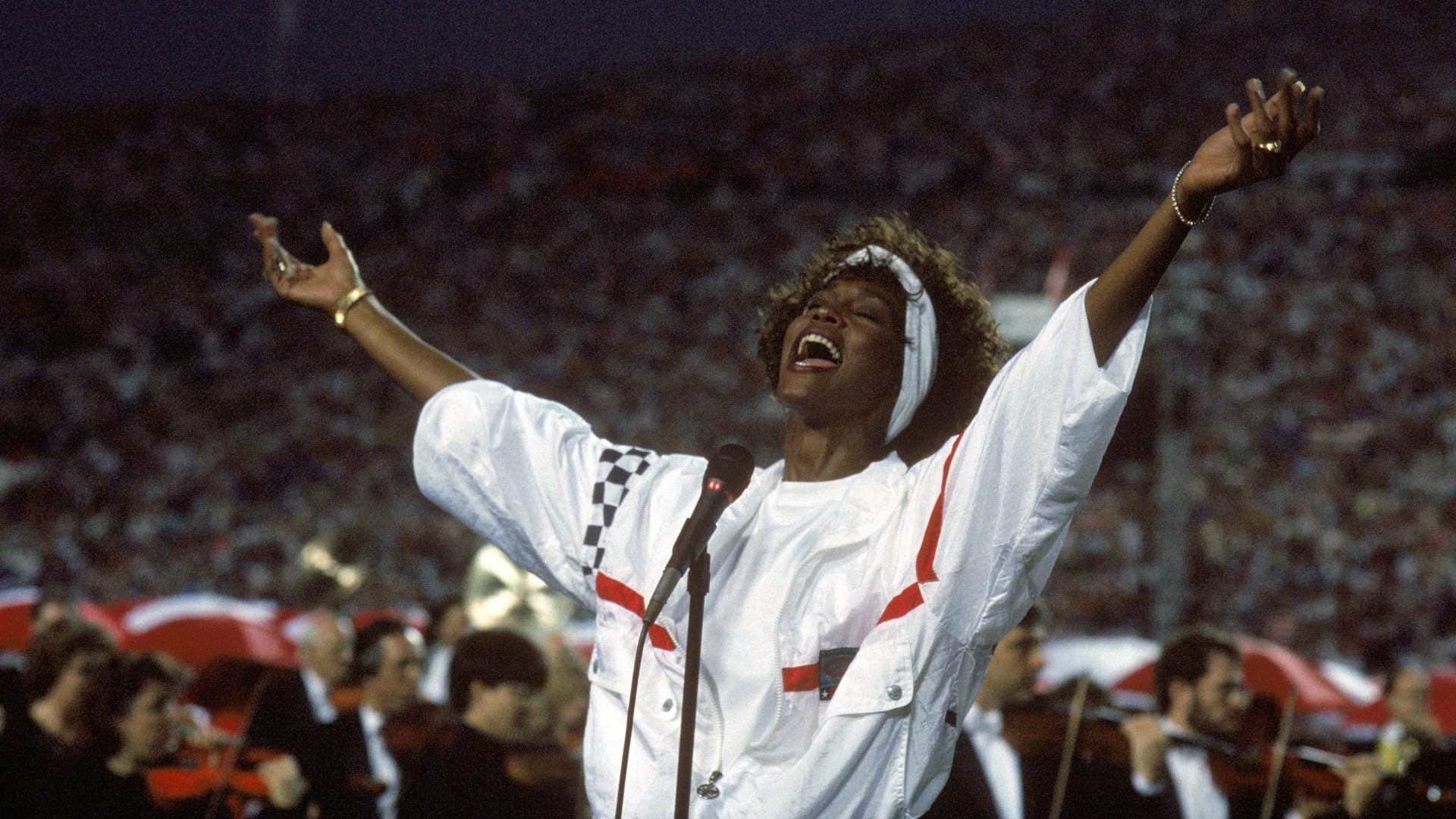
We’ve all heard the two-minute song hundreds of times. We’ve even covered our hearts with our hands and belted out the anthem ourselves time and time again over the years—in school, at games, even in times of protest.
But no one, and I mean no one, can sing “The Star Spangled Banner” like Whitney Houston. And her iconic rendition in 1991 during Super Bowl XXV in Tampa, Florida, is one that cannot be bested. And many have tried.
Although she was inspired by Marvin Gaye’s 1983 rendition—a super-soulful version that he delivered during the NBA All-Star Game in Inglewood, California—we can’t help but compare everyone’s version of the national anthem to what’s now known as Thee Standard. Houston’s rendition was so good, it became Arista Record’s fastest- selling single when they later released it.
It was January 27, 1991, and Houston thought it’d be warm and sunny. So she had packed a sleeveless black cocktail dress for the occasion, according to her then-best friend Robin Crawford, who wrote about the now-iconic scene in her memoir, A Song for You. But when the temperatures had taken a dip, and the clouds rolled in, Houston instead walked onto the field, wearing a white Le Coq Sportif tracksuit with matching Nike Cortez sneakers. She gave a polite wave and fluffed her hair on one side. Perhaps the Grammy Award–winning singer, who did her hair and make up herself, wanted to make sure she looked just right before she completely disrespected the mic. (In a good way, of course.)
The nameless announcer boomed into the mic, “And now to honor America, especially the brave men and women serving our nation in the Persian Gulf and throughout the world, please join in the singing of our nation anthem.”
It wasn’t just that Houston sang that song in a way it had never been sung before, but our nation needed something—a balm at the beginning of a fresh war. U.S. troops had just been sent to Saudi Arabia in early 1991 after Iraqi leader Saddam Hussein tried to take Kuwait the year before.
Backed by the Florida Orchestra, led by conductor Jahja Ling, Houston wasn’t there to put on a show. In fact, she put her hands behind her back before even finishing the first stanza. When the anthem began to describe our flag’s “broad stripes and bright stars,” lyrics penned by poet Francis Scott Key, Houston went into her signature falsetto, bringing an airy lightness to such a heavy moment.
It would make the moment when Houston belted out “and the rockets red glare” in her full voice that much more impactful. She knew what she was doing.
Houston had the power to take the country in her hand and transform even a racist song into a powerful beacon of hope.
Before F-16 jets from the 56th tactical training wing at MacDill Air Force Base in Tampa would fly over the 80,000 people in the stadium that day, they would see Houston raise up each of her arms as she sang the final word of our national anthem—holding out the word “brave” for an effortless eight whole seconds. Even her musical director Rickey Minor couldn’t have imagined she kill it like that.
In that moment, Houston had the power to take the country in her hand and transform even a racist song into a powerful beacon of hope.